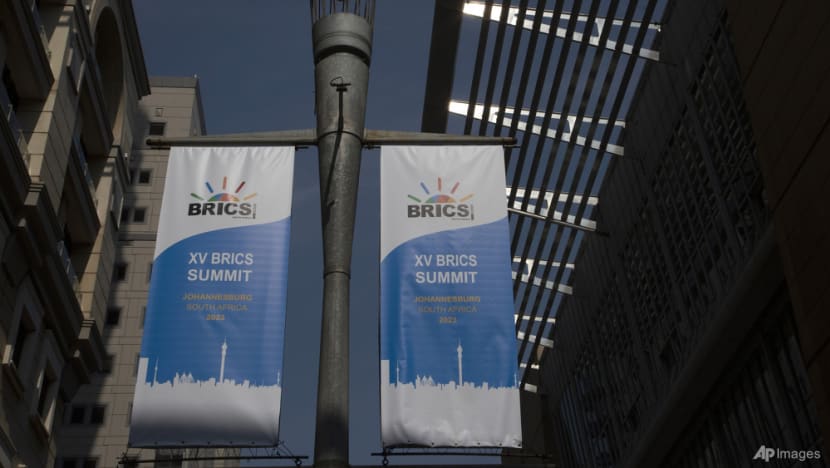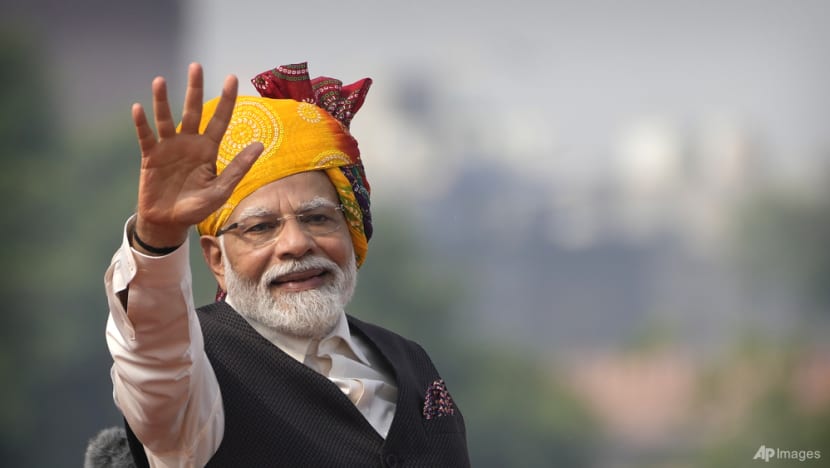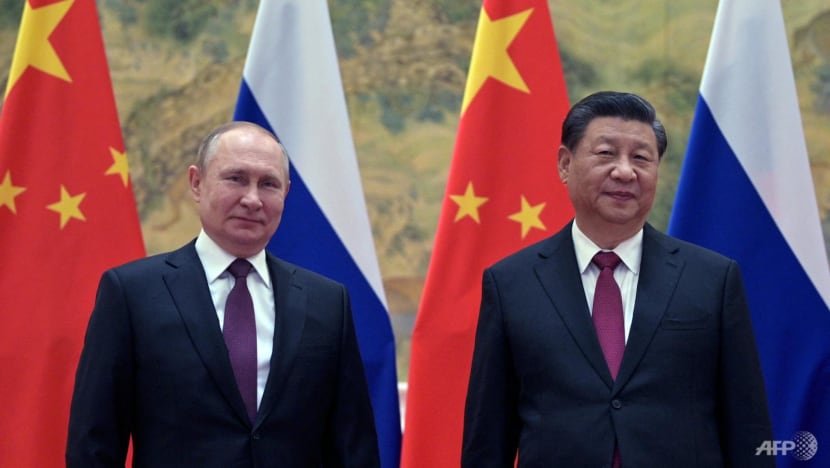Membership expansion top on the agenda at upcoming BRICS Summit in Johannesburg
The three-day 15th BRICS Summit will kick off in Johannesburg, South Africa on Tuesday (Aug 22).

JOHANNESBURG: The admission of new members into the BRICS grouping will be a key topic on the agenda as the 15th BRICS Summit kicks off in Johannesburg on Tuesday (Aug 22).
While 23 countries have formally expressed their interest in joining the bloc, officials said a total of 40 are considering seeking membership.
However, it is not a straightforward decision as unanimous support among all existing members is needed before any of them can be officially admitted.
The grouping, which accounts for about a quarter of the world’s wealth, started out in 2001 as BRIC, an acronym of the four fastest growing economies Brazil, Russia, India and China.
Summit host South Africa officially became a member in late 2010, and is the only other country to have joined the bloc so far.
Its president Cyril Ramaphosa will host China's President Xi Jinping, India's Prime Minister Narendra Modi and Brazil's President Luiz Inacio Lula da Silva for the annual three-day summit, with Russian President Vladimir Putin participating remotely.
A total of 34 leaders from Africa and the Global South will take part in the BRICS Summit in the coming days, including initiatives to build partnerships between the bloc and other emerging economies.
GREATER MARKET ACCESS FOR MEMBERS
Membership in the bloc brings countries greater access to their fellow members’ markets, and is also a source of foreign direct investment.
Since joining BRICS, South Africa’s exports to China have increased four-fold, making the Asian giant its largest trading partner.
India was its eighth largest importer last year, though Brazil and Russia do not currently feature amongst its top 25 trading partners.
Ms Sanusha Naidu, senior research associate at the Institute For Global Dialogue, said all eyes will be on the type of announcement on new memberships emerging from the summit.
“Is it going to be an announcement to say that they have negotiated and agreed to a framework of principles, standards, and normative criteria that will define what expansion will mean, in terms of enabling countries to apply to become members of an expanded BRICS?” she asked.
“Or would it just be to say that ‘the expansion is something that we are going to go forward with’, but not necessarily a kind of announcement that it’s a done deal.”BRICS currently represents more than 40 per cent of the global population, and leaders of the current member countries see significant value in adding more developing economies.

South African Minister Of Communications And Digital Technologies Mondli Gungubela said: “The more developing countries come together to collaborate and to deal in a collective way with inequalities that are always concomitant with developing countries, the better.
“It means the more united, the more cohesiveness is that category of nations.”
DIFFERING VIEWS TOWARDS NEW MEMBERS
Russia, China and South Africa are keen to grow the bloc, with Moscow and Beijing especially seeking to expand their network of allies amongst the world’s developing countries.
However, India and Brazil are more reticent towards expansion.
Egypt, Morocco and Nigeria are among six African countries bidding for membership, but they require unanimous support from all existing members in order to join.

Ms Naidu told CNA: “The issue at hand is that there has to be consensus agreement, and all of the five BRICS countries have to be on the same page in terms of criteria and the framework.
“And at this point in time, the sense one gets is that they are not there yet.”
Since last year’s summit hosted by China, BRICS Sherpas, who are representatives of member countries, have worked on guidelines, criteria and principles to pave the way for the bloc’s membership expansion.
However, it may take several more summits before the process is completed.For now, there remain some South African politicians, such as Democratic Alliance party leader John Steenhuisen, who believe that BRICS is not a necessary conduit for African collaboration.
“We get very little out of BRICS as a country. These are not countries we do massive trade with,” he noted.
Mr Steenhuisen said if there was “greater solidarity on the African continent, in terms of creating strategic alliances”, it would greatly benefit African countries who can then bring that collective clout to the global stage.
Even if a framework for the grouping’s expansion is not finalised by the end of the meeting, the host nation hopes it would have provided a platform for the diverse voices within BRICS and Africa to listen to one another.















